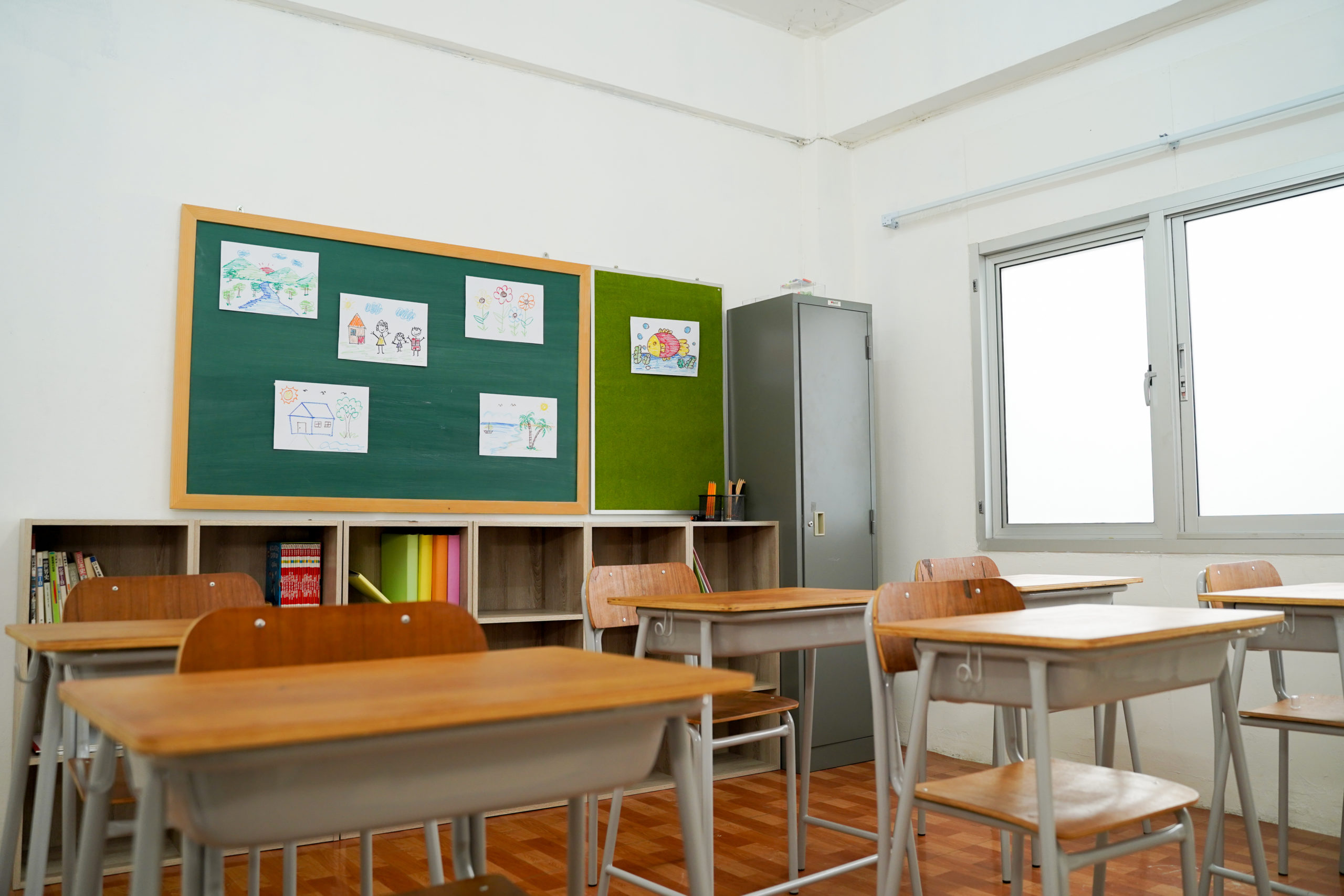

Public education's primary purpose is preservation of our democratic republic.
RECOMMENDED READING
“The reason that our eighteenth-century founders and their nineteenth-century successors believed schools were crucial to the American future,” writes education scholar E. D. Hirsch, “was not only that the schools would make students technically competent. That aim was important, but their main worry was whether the Republic would survive at all.” The early American republic did not make unprecedented investments in universal public education for the sake of closing an achievement gap. That system did not become the envy of the world because it produced the highest test scores. Emphasis, per Hirsch, was on “common knowledge, virtue, skill, and an allegiance to the larger community shared by all children no matter what their origin.” Touring the country in 1831, Alexis de Tocqueville found that “in the United States, the education of the people powerfully contributes to the maintenance of the democratic republic.”
How far we have come, in some direction. The education reformers of recent decades have obsessed over a narrow conception of academic achievement, defined roughly as high standardized test scores and college enrollment. Just last week, Michael Bloomberg announced that he would commit another $750 million to charter schools with a goal of building “a new, stronger model of public education that is based on evidence, centered on children, and built around achievement, excellence and accountability.” So embedded is this mentality that other concerns fail to register with the commentariat. “Does anyone care to make a forecast about educational outcomes in states that ‘ban critical race theory’ versus those that don’t?,” the Niskanen Center’s Matthew Yglesias casually mocked. “Will the kids learn more? Less? Different outcomes for different subgroups?” The formulation begs the question. What, after all, is an educational outcome?
Several ideological trends share the blame for the shift in the public understanding of public education. Conservatives tend to point the finger at radically progressive conceptions of “equity” and revisionist history curricula that transform schools from weavers to shearers of the social fabric. But conservatives have played their own role, committed to the wishful thinking that schools sufficiently focused on improving test scores might somehow remedy all of America’s other inequalities, rendering moot a range of conversations they would prefer to avoid. Through it all, the neoliberal orthodoxy embraced by both left and right, blind to anything but individual preferences mediated by markets, has worked its magic. Parents and students became “customers.” Ensuring quality became a matter of quantifying and then incentivizing it. The primary goals became helping people discover themselves, pursue their passions, and lead lives free of attachments or obligations.
“Through it all, the neoliberal orthodoxy embraced by both left and right, blind to anything but individual preferences mediated by markets, has worked its magic.”
Of course, the reformers have failed on their own terms. Test scores went nowhere—despite a doubling of per-pupil spending, performance by 17-year-olds on the National Assessment of Educational Progress is no higher than in the 1970s. College attendance increased, but Harvard University’s David Deming has shown that the share of young people obtaining a bachelor’s degree by age 25 in 2015 was barely higher than in 1975. The high-school-to-college-to-career pipeline works for only a fortunate fifth of the population: A student is roughly as likely to drop out of high school, never pursue college, drop out of college, or complete college but land in a job that requires no degree.
Mostly what education policy has achieved is to streamline a process that strip-mines talent from the nation’s communities, exports it to elite enclaves that operate as part amusement park and part indoctrination camp, and then settles it in one of a few cosmopolitan cities. That this is typically the path the reformers themselves follow, and that its output looks eerily like, well, them, could always be a coincidence. But I digress.
Beneath the tactical failures is the more fundamental error of forgetting what public education is for. Succeeding at the wrong goal would not be much of a success. In this collection, we propose four purposes that public education would embrace if it were emphasizing the importance of family, community, and industry to the nation’s liberty and prosperity. Education policy has not just ignored these purposes, but consistently pursued antithetical ones. Indeed, the leading experts able to address them tend no longer to come from the realm of education policy at all.
“Mostly what education policy has achieved is to streamline a process that strip-mines talent from the nation’s communities, exports it to elite enclaves that operate as part amusement park and part indoctrination camp, and then settles it in one of a few cosmopolitan cities.”
The first of our purposes, addressed in this collection by John Sailer of the National Association of Scholars and Bruno Manno of the Walton Foundation, is empowering the common citizen. Effective public education should provide all people with a foundation of knowledge, skills, and habits atop which they can build productive lives and participate fully in the economic, social, and political life of their communities. Rigorous academics is one element of such a program, but rigorous academics to the exclusion of other content, and to the exclusion of those who lack the aptitude or aspiration to achieve its demands, is counterproductive. College prep academies have their place, but converting all of public education into one abandons the majority whose needs and interests lie elsewhere.
Second, from the American Enterprise Institute’s Yuval Levin, is the formation of a virtuous elite. Every nation requires leaders, every leader requires education, and so it is in the public’s interest to provide an education that will prepare its elite to lead well. Institutions of higher learning once did this, but they have since disavowed any such obligation and chosen an ethic of meritocratic superiority and entitlement over one of gratitude and obligation. Coursework is regarded as a means of self-fulfillment or a prerequisite to future enrichment, and often takes a backseat to a full-time bacchanalia in buildings named for hedge-fund managers. “Rather than just rail against privilege,” writes Levin, universities “should teach their students how to earn and deserve it.”
The Hudson Institute’s Arthur Herman tackles a third purpose, advancement of national power. America requires a capable workforce to foster economic growth and expand the capacity of its industrial base. Public education geared toward those tasks is indispensable, but today’s leaders resent the implication that resources should be allocated in such a grubby and instrumental way, rather than to the pursuit of whatever knowledge students and faculty might find most ennobling. The word “vocational” is no longer allowed, one must call it “career and technical education.” Universities gladly rely upon foreign funding and personnel, even when evidence of ongoing sabotage is overwhelming. “Education policy [is] defense policy,” observes Herman, and we had better start acting like it.
Finally, the Claremont Institute’s Arthur Milikh writes on the purpose of instilling civic virtues and shared allegiances. This issue is the one most fiercely debated today, but those debates mostly concern the question of whether schools should adopt curriculum that denigrates the nation and pits races against one another or maintain a more careful neutrality. But neutrality is not enough. Any cohesive and sustainable polity, but especially a democracy, requires a citizenry that takes pride in a shared identity and operates from common civic and political values. Public education, per the term’s plain meaning, has responsibility for inculcating those beliefs and values and preparing young people for citizenship.
Inherent to all these purposes is the idea that public education is public—that is, it is provided for by public resources on behalf of the common good. This goes most plainly for the traditional K-12 school system, but applies as well to the college-industrial complex, most of which is overtly public and the rest of which relies on public subsidy. One might make an argument from private interest for a different approach—perhaps akin to the general experience of today—on each dimension. Plenty of kids, and too many parents, probably like the idea of college as a four-year journey of self-discovery. Many professors and students would prefer a course on “Songmaking and the Idea of Lyric” to one on a more useful topic. Some people find fulfillment in white-privilege struggle sessions. To this, the reply is simple: by all means. But don’t ask public policy and resources to help.
“Inherent to all these purposes is the idea that public education is public—that is, it is provided for by public resources on behalf of the common good.”
The American right-of-center’s free-market fundamentalism has prevented conservatives from directing public education toward its necessary tasks. Instead, their rhetoric relies entirely on “choice” and “opportunity.” Unsurprisingly, this has fared poorly against a progressive agenda determined to co-opt the institution. A nation cannot be neutral in the content or purpose of the education that it provides its children, nor can it offer the service as entertainment for the upper-middle class. Even if it were true that our country is the worst country on Earth, that our races rightly mistrust each other, and that justice demands we hand half the land to Native American tribes and rewild the other half for roaming bison, public schools would have no business delivering the message. The Department of Education is not a suicide pact.
The good news is that, unlike the college-for-all, achievement-accelerating project of self-discovery policymakers have advanced in recent decades, public education’s true purposes are achievable. Schools cannot prepare everyone for college, but they can prepare everyone for life. They can provide character formation. They can facilitate important research. They can instill common values. If we made those our goals, we might begin to make progress.
Recommended Reading
Between the Common School and the Market
Johns Hopkins’s Ashley Berner discusses the benefits and tradeoffs of a pluralistic approach to education in America.
Staying the Course
We should continue the state – and community-level work that is bringing to life a more pluralist approach to schooling, argues Andy Smarick.
Reform Requires Reformers
Ashley Berner makes the case for a pluralist structure that embraces district, charter, and private schools, while insisting on quality.













